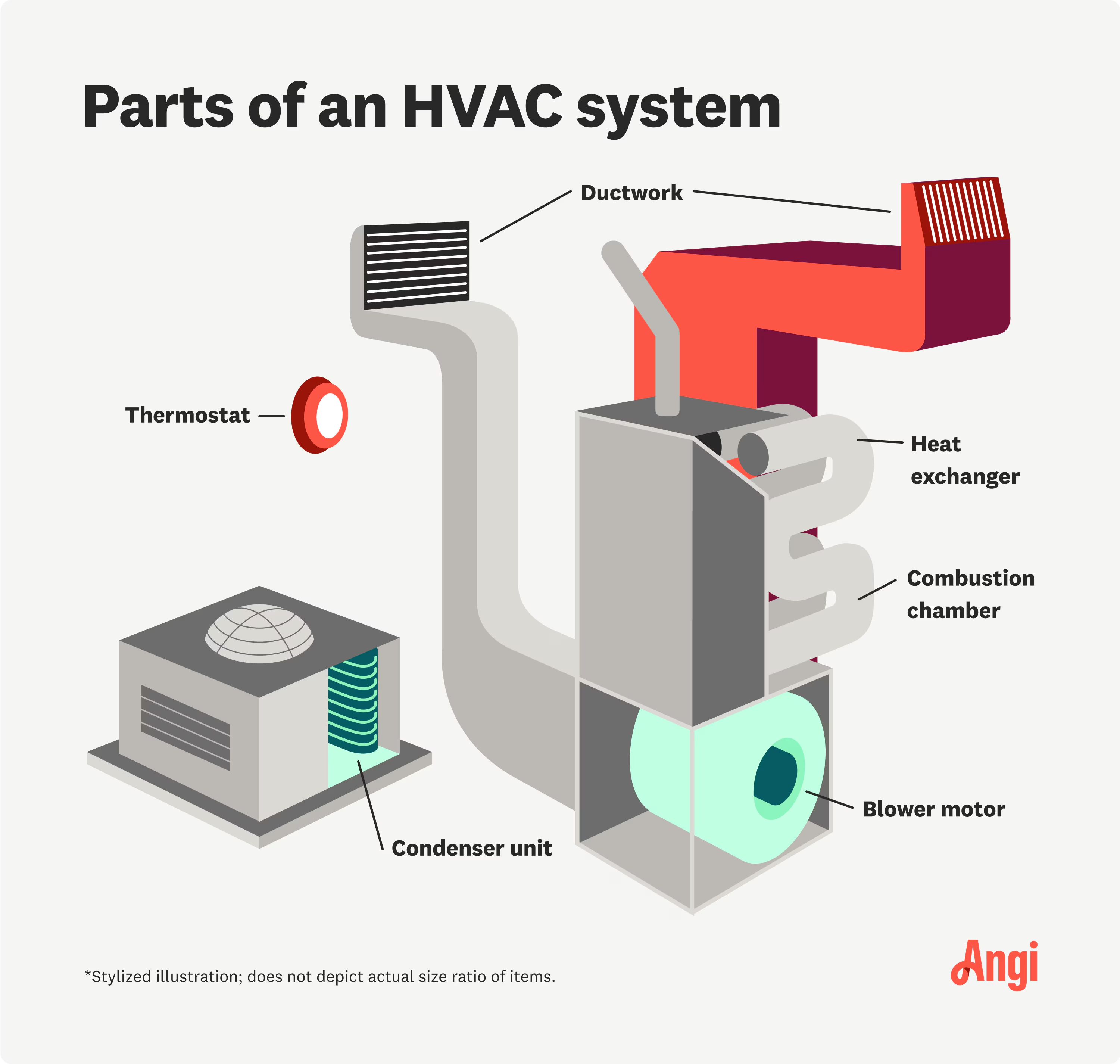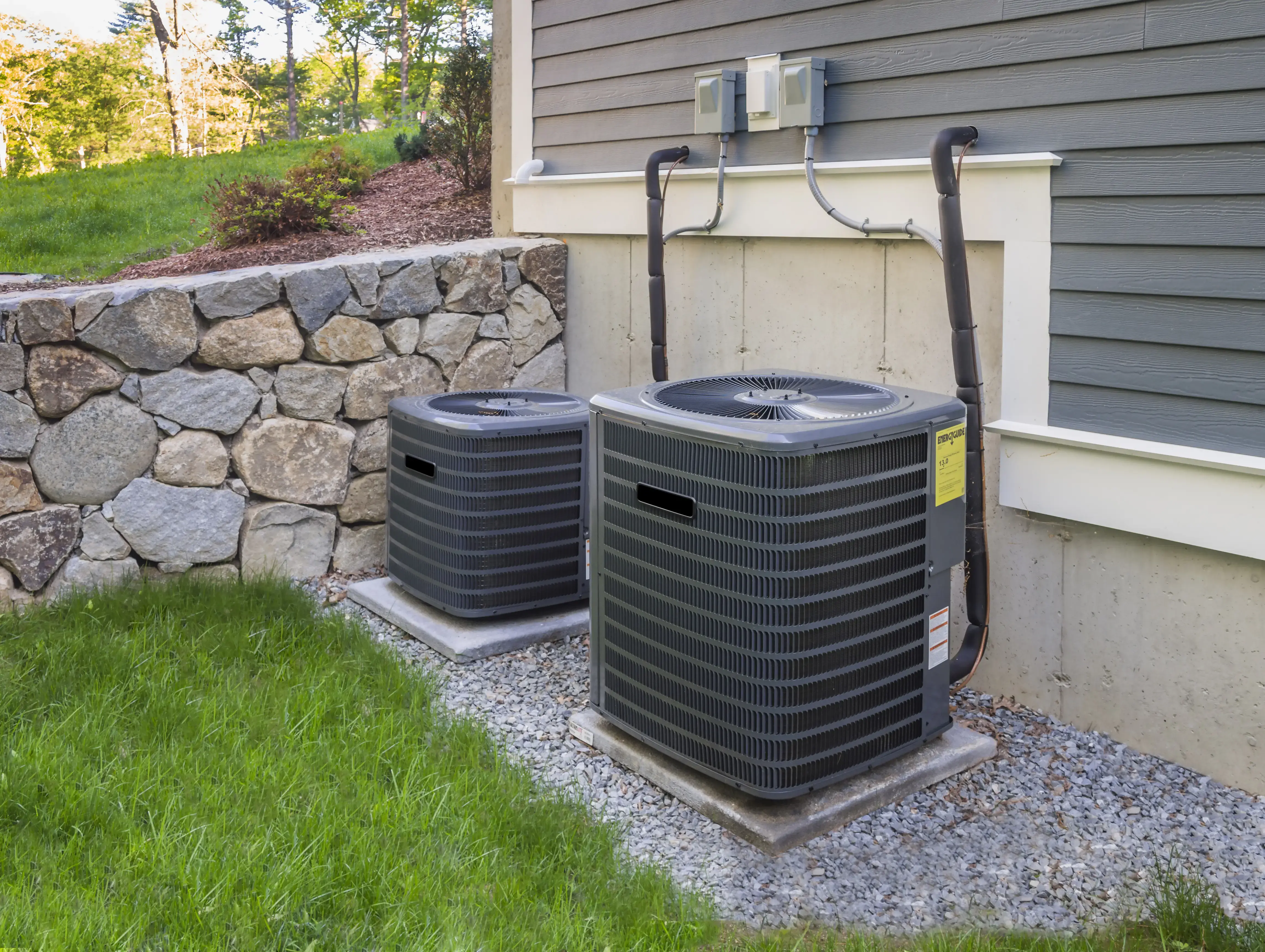Understanding the Different Types of HVAC System for Ideal Performance
Understanding the various sorts of cooling and heating systems is crucial for home owners intending to improve comfort and energy performance. Air conditioning systems offer uniform temperature level control, while ductless mini-split systems use versatility. Heatpump provide efficient year-round environment monitoring. For smaller spaces, home window and portable a/c work as useful options. Geothermal systems utilize regular below ground temperatures for sustainable heating & cooling. Each option holds special advantages, motivating a more detailed assessment of which could match individual demands best.
Central Air Conditioning Systems
Many house owners seek methods to enhance interior comfort, comprehending main air conditioning systems is important for reliable climate control. Central air runs by circulating trendy air through a system of air ducts, dispersing it evenly throughout the home. This sort of system includes several crucial parts, including an outdoor compressor, an interior evaporator coil, and a network of ductwork.
The compressor cools down refrigerant, which after that absorbs heat from interior air as it goes through the evaporator coil. This cooled air is pushed via the ducts and into living areas, assuring a consistent temperature. Central air systems are recognized for their efficiency, commonly utilizing programmable thermostats to optimize energy use. Routine upkeep, such as filter adjustments and system checks, is necessary to ensure durability and efficiency. Understanding these components helps property owners make notified choices regarding installation and upkeep, ultimately enhancing comfort and energy efficiency in their homes.
Ductless Mini-Split Solutions
Ductless mini-split systems use a versatile option to standard main air conditioning, catering to homeowners seeking effective climate control without the need for comprehensive ductwork. These systems include an outdoor compressor system and one or more indoor air-handling units, enabling targeted air conditioning and home heating in details locations or spaces. This zoning ability improves convenience by allowing users to adjust temperature levels based upon private preferences, inevitably bring about energy savings.
Setup is usually easier and much less invasive compared to ducted systems, which can be valuable for older homes or areas with restricted structural modifications. In addition, ductless mini-split systems frequently feature energy-efficient technologies, such as inverter-driven compressors, which maximize energy consumption based on demand. Their portable style also permits different placement choices, making them optimal for unusual or tight rooms. Because of this, ductless mini-split systems have actually gotten popularity amongst property owners seeking contemporary, efficient cooling and heating options.
Heat Pumps
Warmth pumps represent an energy-efficient and versatile choice for both home heating and cooling residential areas. These systems run by transferring warmth rather than producing it, making them specifically effective in modest climates. During warmer months, heatpump extract warm from inside and release it outside, supplying air conditioning. On the other hand, in winter months, they reverse this process, drawing warmth from the outdoors air or ground to warm the inside.
There are 2 primary types of heatpump: air-source and ground-source (or geothermal) Air-source warmth pumps are much more usual due to their simpler setup and reduced first cost, while ground-source designs boast greater performance and stability in performance. Furthermore, heatpump can especially reduce energy expenses and carbon footprints when contrasted to traditional home heating approaches, making them an environmentally friendly option. On visit this website the whole, warmth pumps stand as a compelling solution for property owners looking for reliable environment control throughout the year.
Home Window and Portable Air Conditioners

On the various other hand, portable a/c unit supply adaptability, as they can be conveniently relocated from space to space. These units generally require a venting kit to tire hot air through a window, yet they give a hassle-free alternative for momentary cooling requirements.
Both types of air conditioning system news appropriate for occupants and those looking for to prevent comprehensive installation procedures. Customers ought to consider factors such as BTU capability, power performance scores, and noise degrees when picking a device to guarantee peak performance for their certain room and cooling demands.
Geothermal Home Heating and Cooling Systems
As power effectiveness becomes significantly crucial, geothermal cooling and heating systems have gained appeal for their sustainable strategy to climate control. These systems make use of the secure temperature levels found below ground to offer home heating in winter season and air conditioning in summertime. By harnessing click to find out more the earth's all-natural thermal energy, geothermal systems significantly reduce reliance on nonrenewable fuel sources and lower energy costs.

Furthermore, geothermal systems commonly require much less upkeep compared to conventional cooling and heating systems, leading to long-term financial savings - HVAC experts. With enhancing understanding of environment change, these systems stand for a forward-thinking remedy for those looking for environment-friendly and reliable home heating and cooling down options
Frequently Asked Questions
How Frequently Should I Service My A/c System?
A/c systems need to preferably be serviced two times a year, as soon as in the springtime and as soon as in the autumn. Routine upkeep assists assure efficiency, lengthens life-span, and prevents pricey breakdowns throughout optimal use periods.
What Size Heating And Cooling System Do I Need for My Home?
Figuring out the proper dimension for an a/c system needs determining the home's square footage, insulation quality, and environment. A specialist evaluation assurances maximum performance, convenience, and power financial savings tailored to the particular demands of the home.
Can I Install a HVAC System Myself?
Mounting an a/c system separately is possible, yet it needs technological understanding and skills. Blunders can result in inefficiency or safety dangers, so speaking with a professional is usually suggested to guarantee proper installment and compliance with regulations.
What Are the Indicators My Heating And Cooling System Demands Repair Service?
Signs that a cooling and heating system needs fixing include uncommon noises, inconsistent temperature levels, enhanced power bills, undesirable smells, and regular biking. Prompt focus to these indicators can stop additional damages and warranty top system efficiency.
How Can I Enhance My HVAC System's Energy Performance?
To improve a/c power performance, one should consistently replace filters, seal ducts, mount a programmable thermostat, warranty proper insulation, and timetable regular upkeep checks. HVAC experts. These actions collectively boost efficiency while decreasing power intake and costs
Central air conditioning systems offer consistent temperature level control, while ductless mini-split systems offer flexibility. Central air conditioning operates by distributing trendy air through a system of ducts, distributing it equally throughout the home. Central air conditioning systems are known for their effectiveness, usually using programmable thermostats to optimize energy usage. Ductless mini-split systems use an adaptable choice to conventional central air conditioning, catering to homeowners seeking reliable climate control without the need for considerable ductwork. Geothermal systems normally need much less upkeep compared to conventional A/c systems, resulting in long-term cost savings.